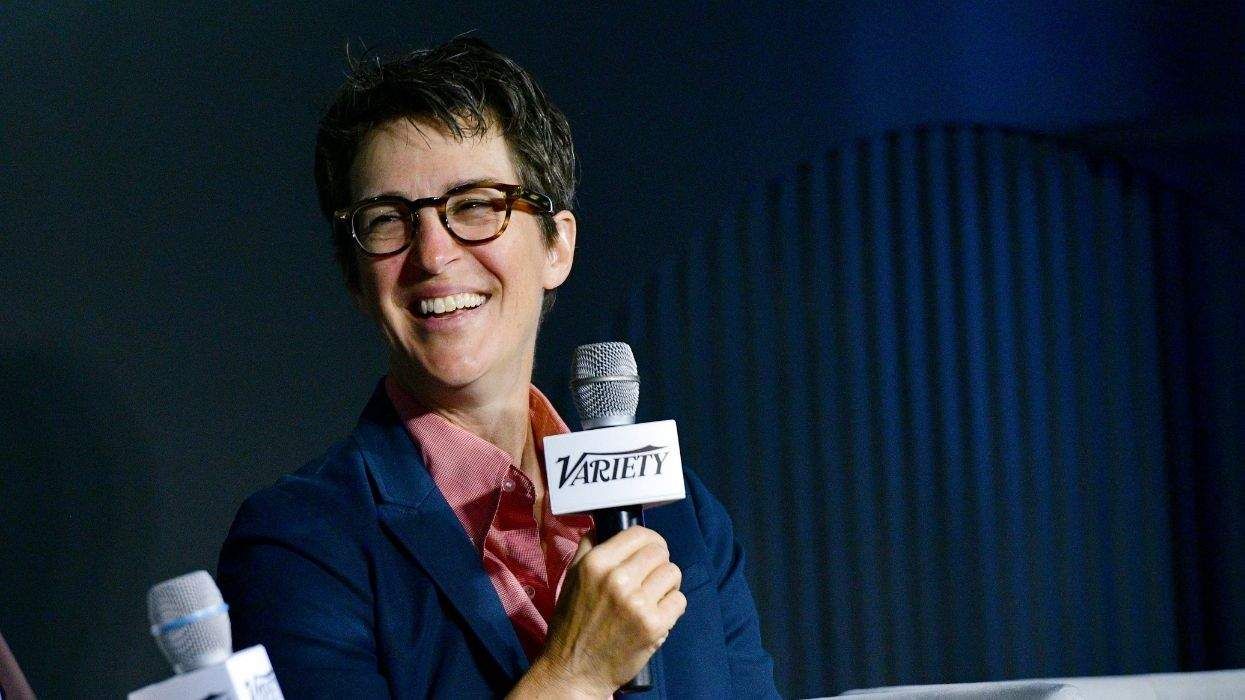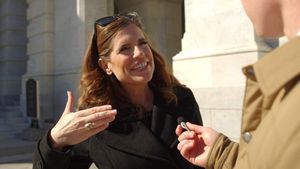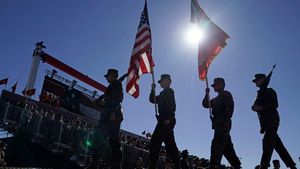By Alaa Elassar, Taylor Romine and Andy Rose
(CNN) -- A federal judge in Texas ruled that at least 12 books removed from public libraries by Llano County officials, many because of their LGBTQ and racial content, must be placed back onto shelves within 24 hours, according to an order filed Thursday.
Seven residents sued county officials in April 2022, claiming their First and 14th Amendment rights were violated when books deemed inappropriate by some people in the community and Republican lawmakers were removed from public libraries or access was restricted.
The lawsuit filed in the US District Court for the Western District of Texas in San Antonio claimed county officials removed books from the shelves of the three-branch public library system "because they disagree with the ideas within them" and terminated access to thousands of digital books because they could not ban two specific titles.
Books ordered to return to shelves include "Caste: The Origins of Our Discontents" by Isabel Wilkerson, "They Called Themselves the K.K.K.: The Birth of an American Terrorist Group" by Susan Campbell Bartoletti and "Being Jazz: My Life as a (Transgender) Teen" by Jazz Jennings.
The library system also is required to reflect these books as available in their catalog and cannot remove any books for any reason while the case is ongoing, US District Judge Robert Pitman said in his order.
"Although libraries are afforded great discretion for their selection and acquisition decisions, the First Amendment prohibits the removal of books from libraries based on either viewpoint or content discrimination," Pitman said.
The fight to protect access to books comes amid a book banning boom, with an alarming increase in attempts to censor books in K-12 schools, universities and public libraries. Many of these efforts seek to pull books with LGBTQ characters or themes and are part of a broader, conservative-led movement to chisel away at the rights and status of LGBTQ Americans.
Many of the book bans have also been aimed at authors of color exploring history, racism or their own experiences in America.
"This is a ringing victory for democracy," said Ellen Leonida, an attorney representing the plaintiffs in the Texas case. "The government cannot tell citizens what they can or can't read. Our nation was founded on the free exchange of ideas, and banning books you disagree with is a direct attack on our most basic liberties."
It wasn't immediately clear whether Llano County officials have complied with the judge's order.
Llano County Judge Ron Cunningham, county commissioners Jerry Don Moss, Peter Jones, Mike Sandoval, and Linda Raschke; library system director Amber Milum and four members of the Llano County library board, Bonnie Wallace, Rochelle Wells, Rhonda Schneider, and Gay Baskin, are named as co-defendants in the case. They did not respond to CNN requests for comment.
The defendants argued the books were removed as part of a regular "weeding" process following the library's existing policies, but Pitman said there was clear influence from outside sources.
"Whether or not the books in fact qualified for 'weeding' under the library's existing policies, there is no real question that the targeted review was directly prompted by complaints from patrons and county officials over the contents of these titles," the judge wrote in his order.
"And, notably, there is no evidence that any of the books were slated to be reviewed for weeding prior to the receipt of these complaints; to the contrary, many other books eligible for weeding based on the same factors appear to have remained on the shelves for many years," he said.
Complaints from community groups targeted multiple books they labeled as "pornographic filth" because they promoted "acceptance of LGBTQ views," according to the order. These books were removed from the libraries, according to the order, as well as other books listed as "pornographic" that were about " 'critical race theory' and related racial themes."
In one email from community member Bonnie Wallace, who was later elected to the library board, she suggested "all the pastors to get involved in this. Perhaps they can organize a weekly prayer vigil on this specific issue. ... May God protect our children from this FILTH."
County commissioners also voted to dissolve the library board and replace it with a new "Library Advisory Board" that appointed multiple Llano County residents, including Wallace, who advocated for the book removals, the order said.
The new board required all new books to "be presented to and approved" by them before purchase, and staff librarians were banned from attending the new board's meetings, according to the order.
Book bans aim to 'suppress the voices' of LGBTQ and communities of color
Dozens of books have been pulled from shelves in Texas, new policies expanding oversight of books are being drafted or already passed in multiple states, a Florida school district halted library purchases and a teacher resigned in Oklahoma over the censorship of books in classroom libraries.
In 2022, the number of attempts to censor library books reached an unparalleled record high since the American Library Association (ALA) began documenting data about book censorship over 20 years ago, ALA said in a March press release.
ALA cataloged 1,269 attempts in 2022; nearly double the number of challenges in 2021.
"A book challenge is a demand to remove a book from a library's collection so that no one else can read it," Deborah Caldwell-Stone, director of ALA's Office for Intellectual Freedom, said in a statement. "Their aim is to suppress the voices of those traditionally excluded from our nation's conversations, such as people in the LGBTQIA+ community or people of color."
Schools are among those where book bans have been especially targeted. In 2022, Texas led the country with the most book bans -- 713 -- affecting 16 school districts, followed by Pennsylvania and Florida with 456 and 204 bans, respectively, according to an analysis by PEN America, a literary and free expression advocacy organization.
"Each attempt to ban a book by one of these groups represents a direct attack on every person's constitutionally protected right to freely choose what books to read and what ideas to explore," Caldwell-Stone said. "The choice of what to read must be left to the reader or, in the case of children, to parents. That choice does not belong to self-appointed book police."
The-CNN-Wire
™ & © 2023 Cable News Network, Inc., a Warner Bros. Discovery Company. All rights reserved.




































































Charlie Kirk DID say stoning gay people was the 'perfect law' — and these other heinous quotes